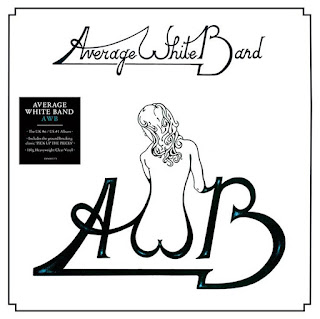It was the year 1973 when a former component of Oblivion Express, Brian Auger's band decided to join other musicians, all passionate about soul and funk, to form a sextet they would call Average White Band, a somewhat humorous name for being all white and practicing eminently black music.
This musician was drummer Robbie Mcintosh, who together with guitarist Hamish Stuart, bassist Onnie McIntyre, and saxophonists Roger Ball and Malcolm Molly Duncan thus began a career that would soon bring them great successes on both sides of the Atlantic.
This Scottish group would choose for their presentation, the return to the stage of Eric Clapton after his tumultuous attics of the latter with drugs, acting as opening act for the legendary guitarist.
And soon after, their first album "Show Your Hand" (1973) would be published under the MCA label, which despite not entering the charts, confirmed the group's rise with a style that fused British rhythm & blues with soul.
A year later the group gets a contract with Atlantic Records, in part due to the mediation of Bruce McCaskill, manager of Eric Clapton at the time, who also directs them from now on.
"Average White Band" (1974), produced by Arif Mardin (responsible for the success of the great soul artists of the Atlantic) the second album of the group, would be the definitive accolade and a large commercial boom, managing to climb to first place in USA and No. 6 in the UK.
In this album the group showed a solid rock base fused with soul, blues and even pop elements, a style that was starting to have thousands of followers around the world thanks to fashion groups such as Sly Family Stone, Temptations or Kool and the Gang among other contemporaries.
The album contained great hits like "Pick up the pieces", "Nothing You can do" or "You got it".
But the misfortune would be fattened with the group shortly after, since that same year McIntosh would pass away due to an overdose of heroin.
But the group will go ahead and recruit another ex-Oblivion Express, Steve Ferrone with whom they publish "Cut the Cake" (1974) who, without reaching the success of the previous album, manage to stay at the top of the ranking with several hits such as "School boy Crush" or "If I Ever Lose This Heaven".
"Soul Searchin" (1976) would be the last great album of the band, which contained the hit "Queen of my Soul" and that would initiate the decline of the group, publishing works of less commercial impact, some of them of good invoice but far from their first albums.


No comments:
Post a Comment